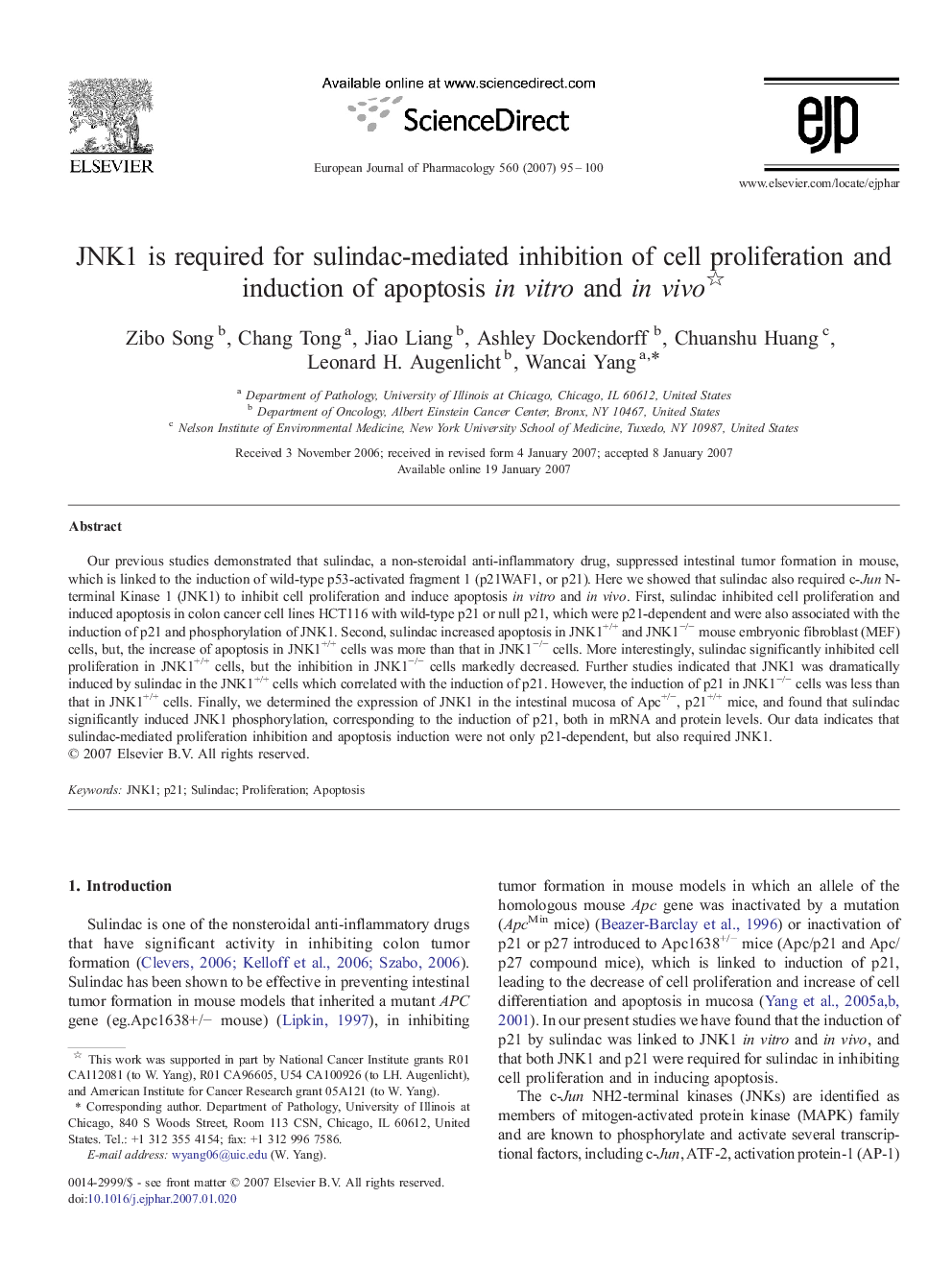| Article ID | Journal | Published Year | Pages | File Type |
|---|---|---|---|---|
| 2536214 | European Journal of Pharmacology | 2007 | 6 Pages |
Our previous studies demonstrated that sulindac, a non-steroidal anti-inflammatory drug, suppressed intestinal tumor formation in mouse, which is linked to the induction of wild-type p53-activated fragment 1 (p21WAF1, or p21). Here we showed that sulindac also required c-Jun N-terminal Kinase 1 (JNK1) to inhibit cell proliferation and induce apoptosis in vitro and in vivo. First, sulindac inhibited cell proliferation and induced apoptosis in colon cancer cell lines HCT116 with wild-type p21 or null p21, which were p21-dependent and were also associated with the induction of p21 and phosphorylation of JNK1. Second, sulindac increased apoptosis in JNK1+/+ and JNK1−/− mouse embryonic fibroblast (MEF) cells, but, the increase of apoptosis in JNK1+/+ cells was more than that in JNK1−/− cells. More interestingly, sulindac significantly inhibited cell proliferation in JNK1+/+ cells, but the inhibition in JNK1−/− cells markedly decreased. Further studies indicated that JNK1 was dramatically induced by sulindac in the JNK1+/+ cells which correlated with the induction of p21. However, the induction of p21 in JNK1−/− cells was less than that in JNK1+/+ cells. Finally, we determined the expression of JNK1 in the intestinal mucosa of Apc+/−, p21+/+ mice, and found that sulindac significantly induced JNK1 phosphorylation, corresponding to the induction of p21, both in mRNA and protein levels. Our data indicates that sulindac-mediated proliferation inhibition and apoptosis induction were not only p21-dependent, but also required JNK1.
